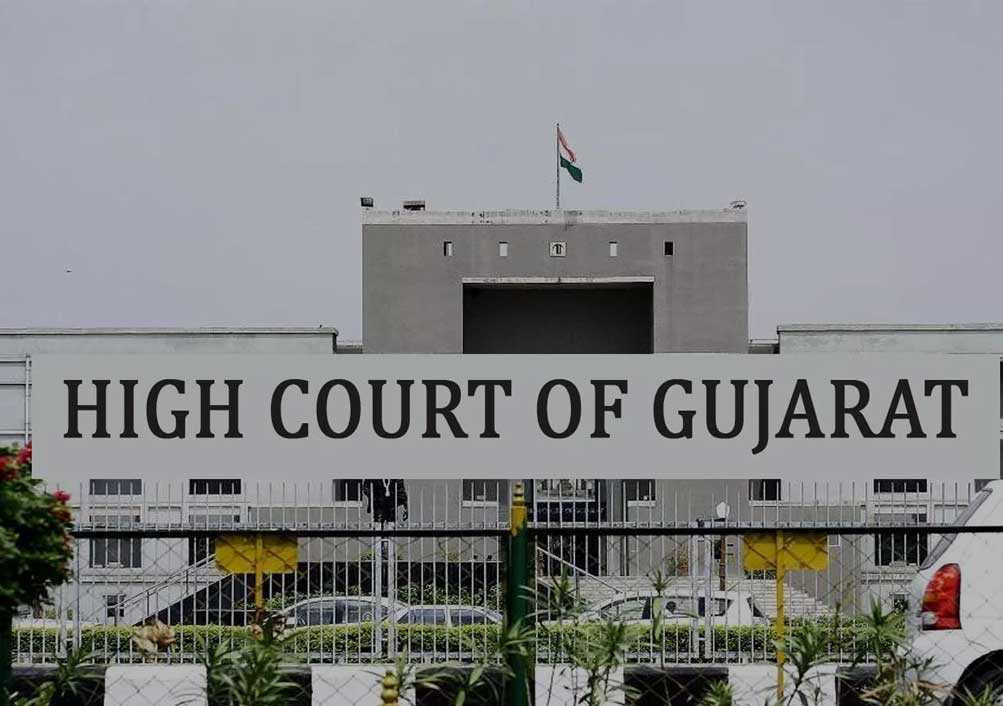In Special Civil Application No. 1350 Of 2021 - GUJ HC - Gujarat High Court declares mandatory deeming fiction of 1/3rd value of land in GST Acts as unconstitutional and arbitrary
Justice J.B. Pardiwala & Justice Nisha M. Thakore [06-05-2022]

Read Order: Munjaal Manishbhai Bhatt v. Union of India
Chahat Varma
New Delhi, June 7, 2023: The Gujarat High Court has declared Paragraph 2 of Notification No. 11/2017-Central Tax (Rate) and a similar notification under the Gujarat Goods and Services Tax Act, which provide for a mandatory fixed rate of deduction of 1/3rd of total consideration towards the value of land, as ultra-vires the provisions as well as the scheme of the GST Acts. The court found that application of such mandatory uniform rate of deduction was discriminatory, arbitrary, and violative of Article 14 of the Constitution.
Factual background of the matter was that the writ applicant, entered into an agreement with Navratna Organisers & Developers Pvt. Ltd. for the purchase of a plot of land and the construction of a bungalow on the said plot. The agreement included separate considerations for the sale of land and the construction of the bungalow. The writ applicant believed that he would be liable to pay all taxes including GST on the consideration payable for the construction of the bungalow, considering it as a supply of construction service under the Central Goods and Services Tax Act/Gujarat Goods and Services Tax Act, 2017. However, the respondent No.4, relying on entry no. 3(if) of Notification No. 11/2017-Central Tax (Rate), informed the writ applicant that they would be liable to pay tax at the rate of 9% CGST + 9% SGST on the entire consideration payable for both the land and the construction of the bungalow. The respondent No.4 deducted 1/3rd of the value towards the land, as mentioned in paragraph 2 of the notification, and raised an invoice to collect the tax from the writ applicant.
The bench of J.B. Pardiwala and Justice Nisha M. Thakore remarked that the legislative intent was to impose tax on construction activity undertaken by a supplier at the behest of or pursuant to contract with the recipient. There was no intention to impose tax on supply of land in any form and it is for this reason that it was provided in the Schedule III to the GST Acts that the supply of land will be neither supply of goods nor supply of services.
The bench further noted that even without going to Schedule III, the only service which was supplied by the supplier to the recipient was the construction undertaken for the buyer and it was such supply alone which can be taxed. Hence the fact that the land was not a plain parcel of land but a developed land cannot be a ground for imposing tax on the sale of such land.
Placing reliance on Messrs Gannon Dunkerley & Company & Others v. State of Rajasthan & Others [LQ/SC/1992/817], the bench held that when the statutory provision requires valuation in accordance with the actual price paid and payable for the service and where such actual price was available, then tax has to be imposed on such actual value. Deeming fiction can be applied only where actual value was not ascertainable.
Thus, the bench ruled that mandatory application of deeming fiction of 1/3rd of total agreement value towards land even though the actual value of land was ascertainable was ultra-vires the statutory provisions.
“Apart from being contrary to the statutory provisions contained in the CGST Act, one of the most glaring feature of the impugned deeming fiction is its arbitrariness in as much as the same is uniformly applied irrespective of the size of the plot of land and construction therein,” further added the bench.
The bench held that the impugned paragraph 2 of Notification No. 11/2017 and the parallel State tax Notification was read down to the effect that the deeming fiction of 1/3rd will not be mandatory in nature. It will only be available at the option of the taxable person in cases where the actual value of land or undivided share in land was not ascertainable.
“Consequently we direct the concerned GST authority to refund the excess amount of tax under the GST Acts to the writ applicant……..Refund is to be granted along with the statutory interest at the rate of 6% per annum,” held the court.
Sign up for our weekly newsletter to stay up to date on our product, events featured blog, special offer and all of the exciting things that take place here at Legitquest.




Add a Comment